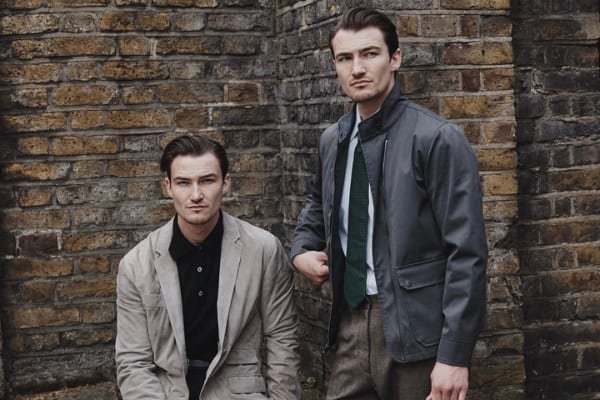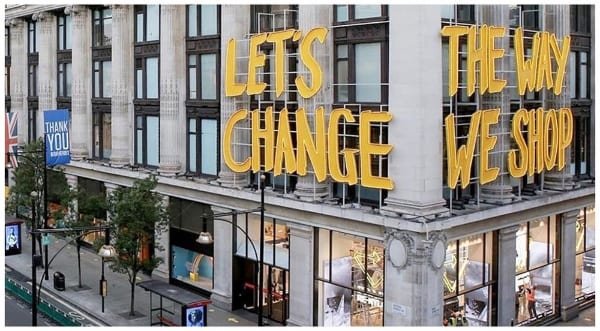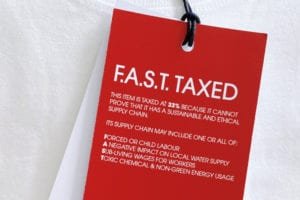Main image: Cudoni UK
This article first appeared in our Women: time for action issue of My Green Pod Magazine, distributed with The Guardian on 02 July 2021. Click here to subscribe to our digital edition and get each issue delivered straight to your inbox
It’s no secret we are buying more and more clothes: since the late ‘80s we’ve gone from buying 10-12 new items per year to almost 70!
The flip side of this is that in the UK alone, every second the equivalent of a rubbish truck load of clothes is burned or buried in landfill.
Fashion’s strain on the planet has been revealed in documentaries and articles that expose the sheer volume of garments produced. Fashion brands have a lot of work to do, but consumers also have a role to play; by adopting more conscious buying habits we could all make a positive difference.
Circular fashion
The circularity of fashion is a complicated piece of the puzzle: what should we do with our clothes when we no longer want them?
Most of us have taken a bag of clothes to the charity shop or received hand-me-downs, and many will have taken bags to a ‘clothes bin’ within a high street store in return for a discount on, you guessed it, more clothes.
These are all ways to extend a garment’s life, but where do these clothes actually end up?
True circularity would involve taking our used items back to the place we bought them to be made into something new, designing out waste and negating further pollution. Unfortunately this is still extremely rare.
The secondhand fashion boom
There has been a change in the way we buy clothes; online secondhand is set to grow 69% between 2019 and 2021 to become a $12bn industry.
America is ahead on this trend; companies like The RealReal and Rent The Runway, now in their 10th and 12th years, are household names.
The bigger players are taking note, too; Vestiaire Collective has recently sold a stake to Kering and even Gucci has an official partnership with resale site The RealReal.
For the UK, thrifting and shopping secondhand has historically been about buying cheap items from eBay or rummaging through piles of clothes to find that one gem.
This narrative has recently started to change, and shopping ‘vintage’ and ‘pre-loved’ luxury items is acquiring a cooler image.
Depop is perhaps the most popular secondhand online marketplace. It saw a tremendous surge during lockdown; demand doubled and there was a reported 300% year-on-year increase in items sold.
Buying secondhand items is a great way to extend the life of clothes; the end of our ownership doesn’t have to mean the end of life for the garment. Being able to pass our loved pieces on will help reduce fashion’s impact on the planet.
Renting your wardrobe
With influencers constantly churning out new content and the viral nature of outfits and ‘hauls’, many consumers deem something worn once or twice as ‘old’ – particularly after they have posted a picture of themselves wearing the outfit.
We currently use rental schemes for occasions like parties, weddings and even graduation – but until now we haven’t thought it could be a plausible solution for our wider wardrobes.
Fashion rental sites have been popularised by those deepest in fashion; people in the magazine industry and even influencers have jumped at the chance to rent out their own wardrobes while still looking on trend with the latest bags or dresses, which they can rent for a couple days.
Many of the sites to the right now have celebrity edits or influencer spotlights, so users can rent items from the people who started the trend!
A couple of different business models are at play here; some companies choose to buy stock upfront and rent it out for themselves, while others offer peer-to-peer rentals.
Victoria Prew, founder of Hurr Collective, recently remarked in a Clubhouse room that lots of users actually use her site for work outfits, changing them out every week.
We think rental is also a great tool for holidays and staycations; by renting an outfit for a week or two in summer, you can avoid buying something that will sit in a drawer for the next 11 months. Rental is a great way to be kind to the pocket and to the planet.
There has been huge progress in new fashion businesses that make a strong case for us to move away from buying new items. The new ‘new’ is all about buying something pre-loved which is new to you, or exploring opportunities when it would make sense for us to rent or borrow something instead. Here are some of our favourite examples of both!
 Play Video about This Rock Might Just Save The World
Play Video about This Rock Might Just Save The World Play Video about Play 2 hours of rock
Play Video about Play 2 hours of rock Play Video about Play 2 hours of brook
Play Video about Play 2 hours of brook Play Video about Play 2 hours of sheep
Play Video about Play 2 hours of sheep
















































